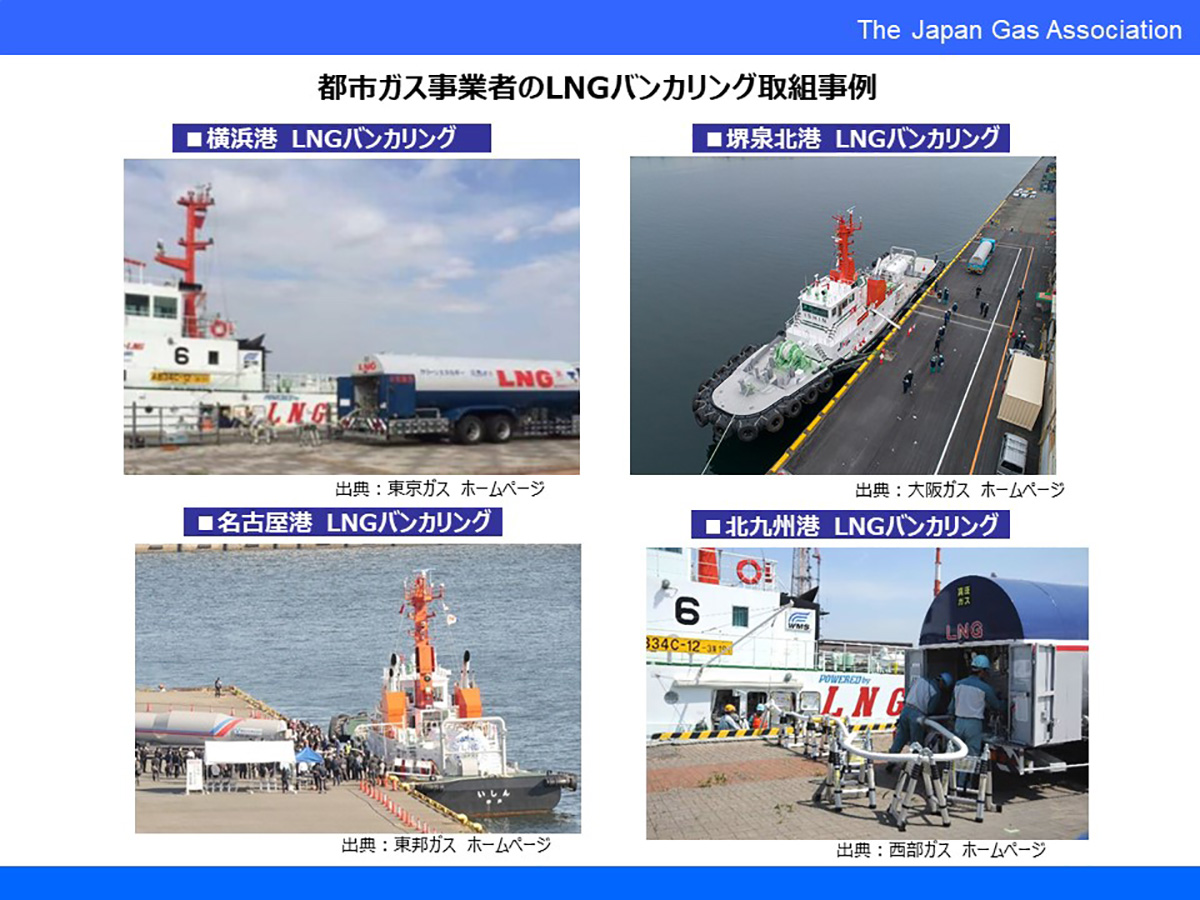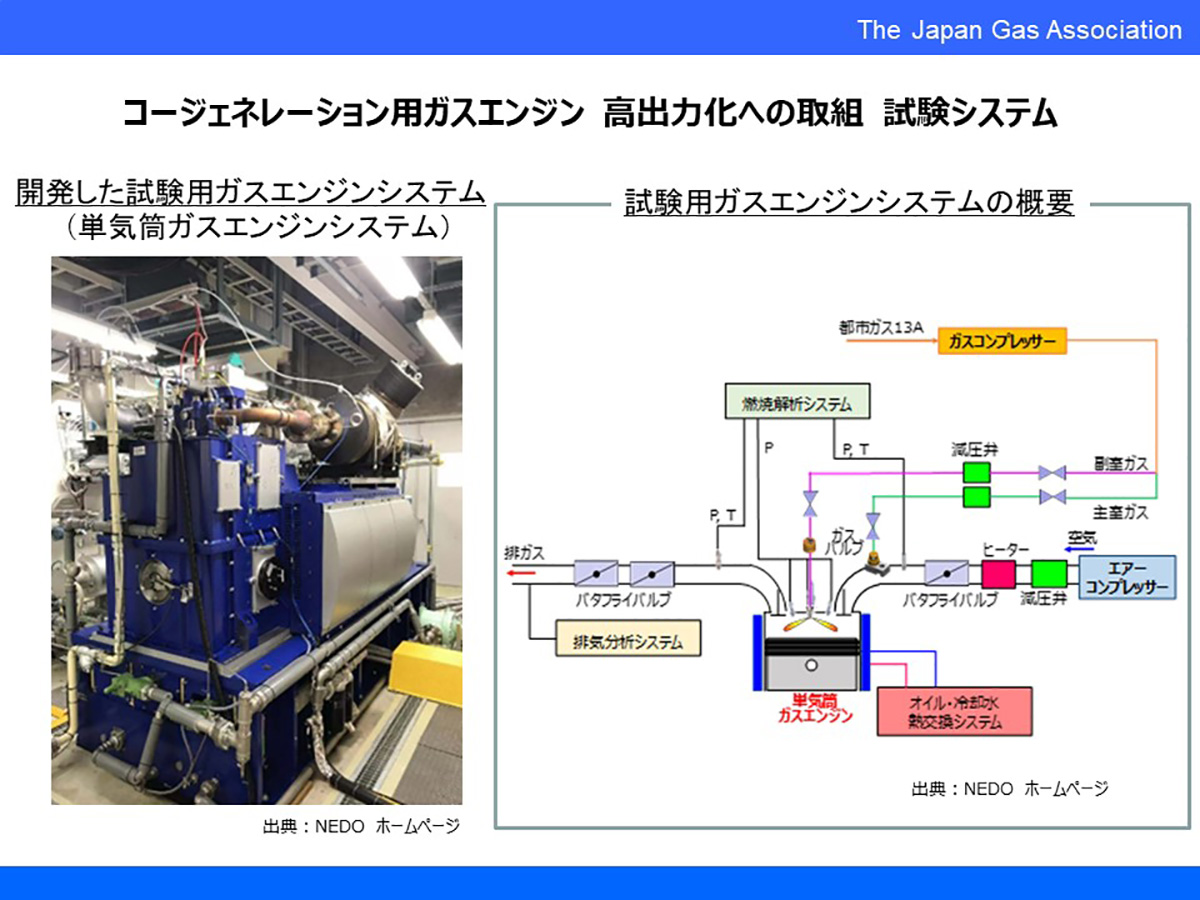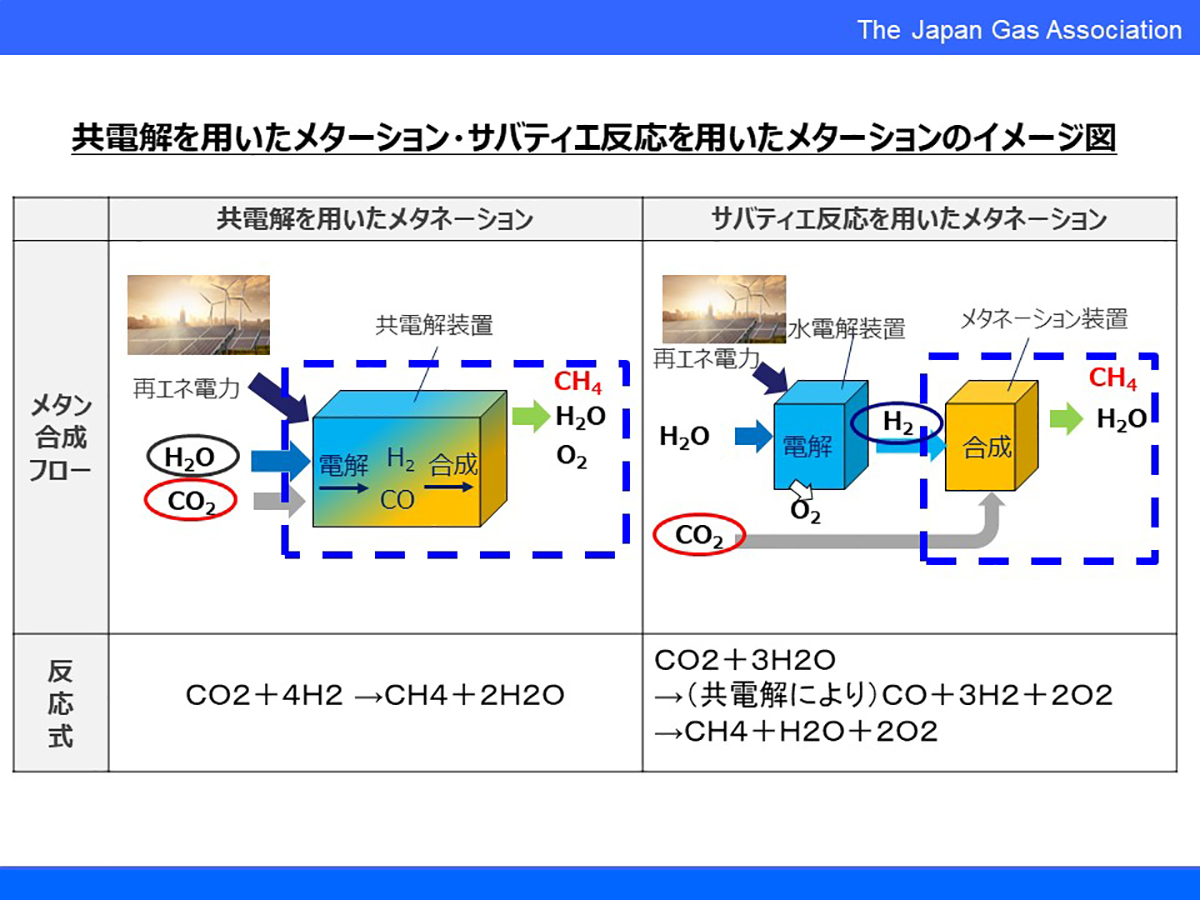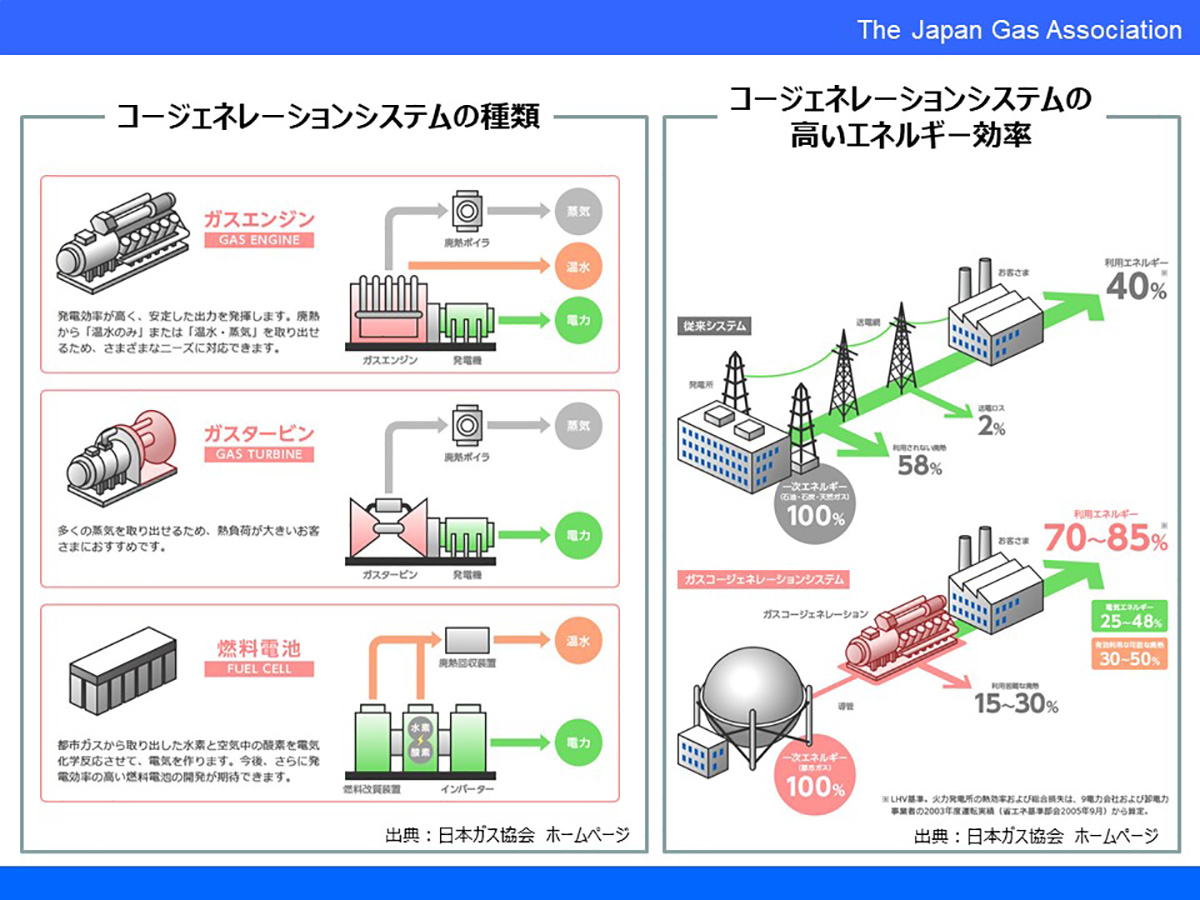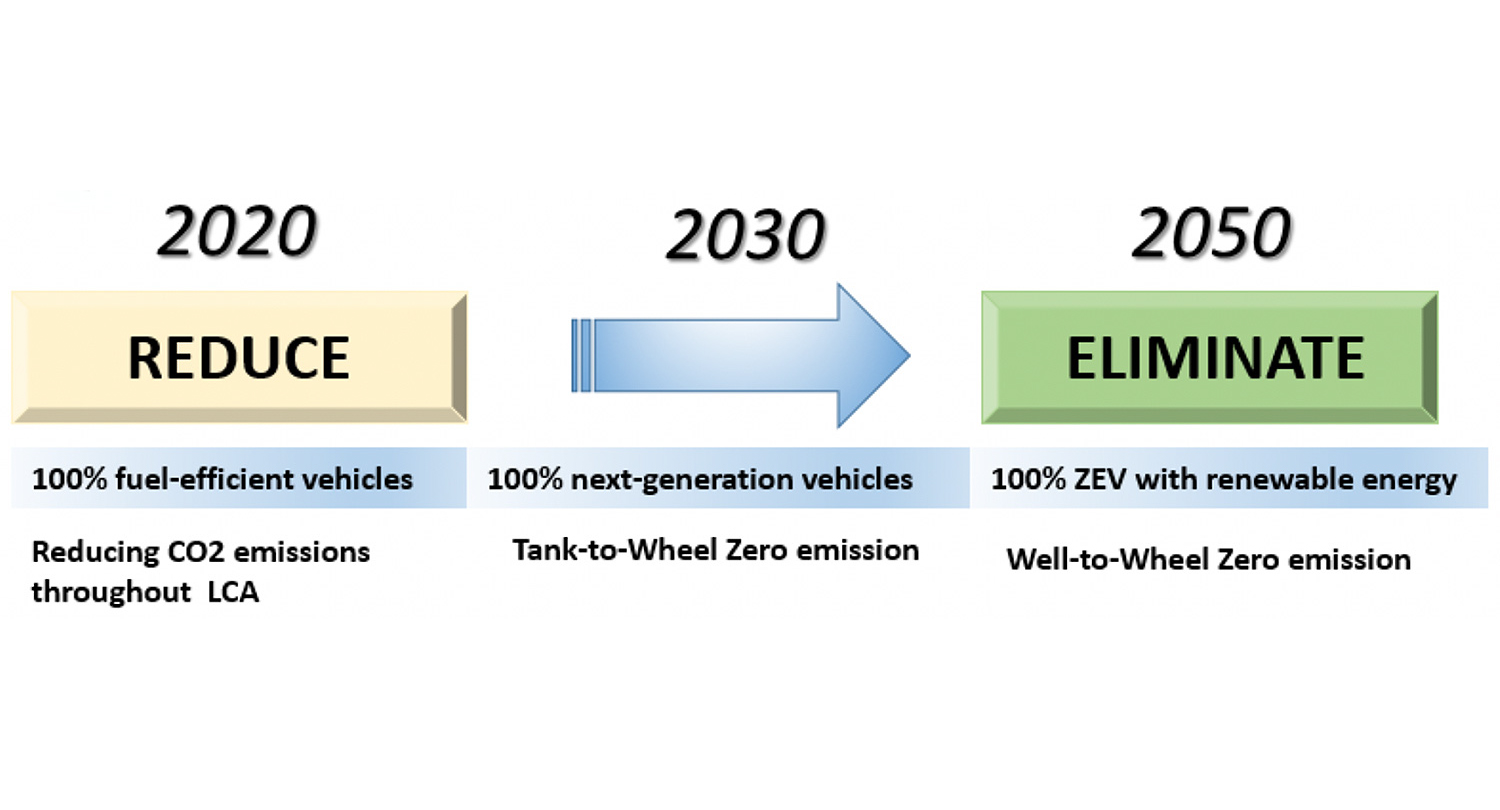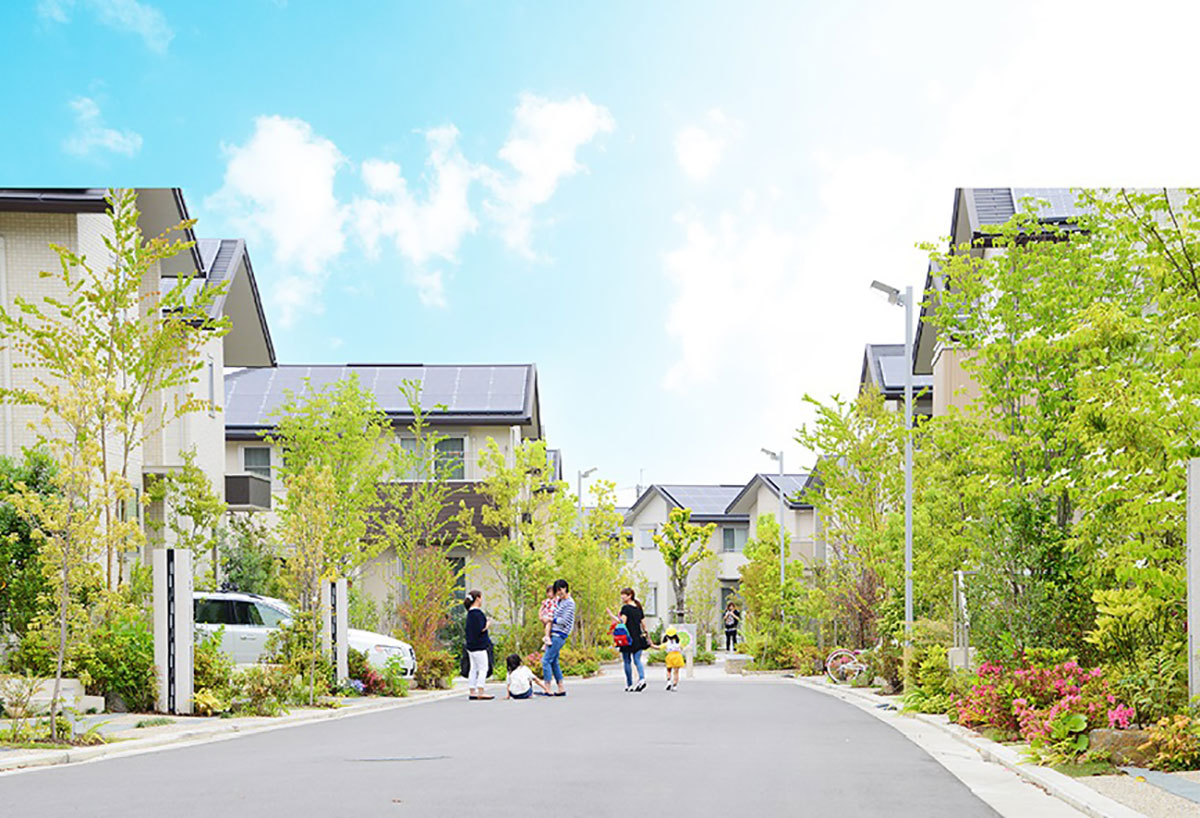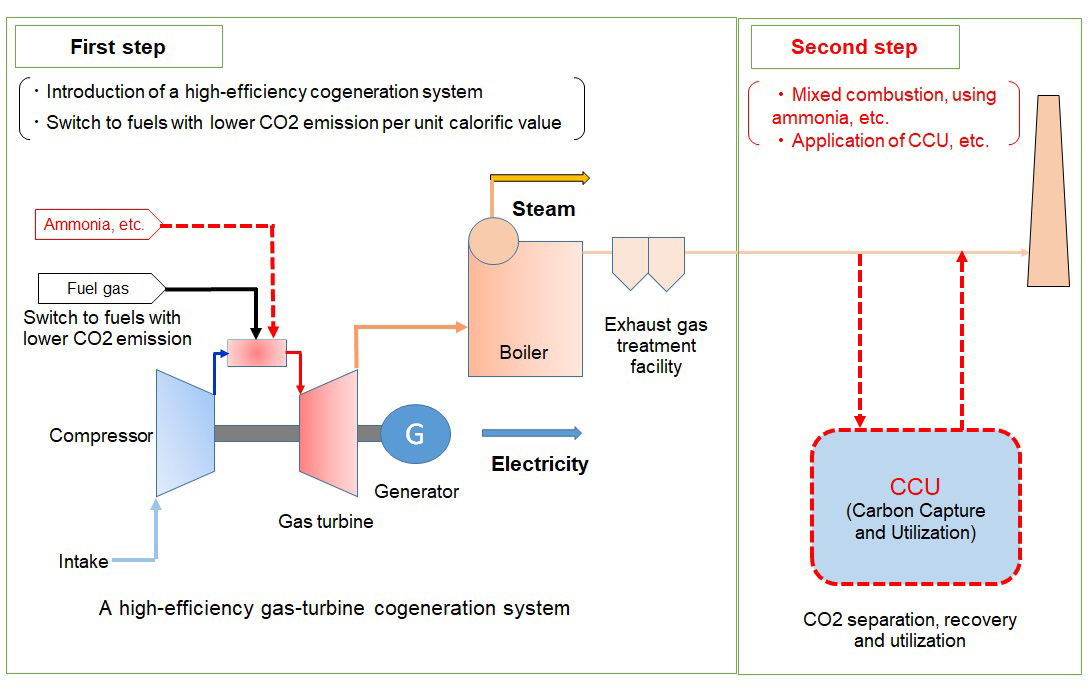Environmental load reduction in marine transportation by expansion of LNG bunkering
The Japan Gas Association
Outline
The city gas industry will contribute to Japan’s global warming countermeasures and the 2030 target in the long-term prospect of electricity demand, by shifting natural gas and promoting low carbonization on the demand side with such as high-level usages of natural gas, in the short to medium-term. In the medium to long term, we will take on the challenge of further low-carbonization and decarbonization through innovations such as methanation technologies.
The city gas companies are working on LNG bunkering (supplying LNG as ship fuel) in order to reduce the environmental impact of marine transportation. International Maritime Organization (IMO) will strengthen SOx regulations on ship emissions from 2020, and countermeasures to reduce greenhouse gases are expected to proceed in the future. So, LNG fuelled ships that contribute to reduction of not only SOx but also CO2 have attracted attention. The city gas companies contribute to greenhouse gas reduction in marine transportation by utilization of LNG shipping facilities at LNG receiving terminals in various regions and LNG handling technologies that they have cultivated so far.
Description
IMO has been strengthening regulations on SOx in general sea areas since 2020 on ship emissions, and will proceed GHG reductions of short-term, medium-term, and long-term measures. Such strengthening regulations in marine transportation lead to introduction of LNG fuelled ships and development of LNG bunkering hubs in Japan and abroad.
The city gas companies contribute to form LNG bunkering hubs by utilizing their LNG shipping facilities at LNG receiving terminals in various regions and LNG handling skills. For example, Tokyo Gas Co., Ltd. works on LNG bunkering at Yokohama Port, Osaka Gas Co., Ltd. at Sakaisenboku Port and Kobe Port, Toho Gas Co., Ltd. at Nagoya Port, and Western Gas Co., Ltd. at Kitakyushu Port. We work on expanding LNG bunkering business for ships.
As a bunker method for supplying LNG to ships, the following three methods are mentioned. In Japan, these days, the method ① is mainly applied. And in order to expand the scale of fuel supply, for example bunkering to large-size LNG fuelled ships, and improve convenience in the future, the plan of forming the LNG bunkering hubs by the method ② and ③ will proceed step by step. The city gas companies will continue to work to achieve safe and efficient LNG bunkering.
① Truck to Ship Bunkering
・ Supplying LNG from an LNG lorry parked on a quay to an LNG fuelled ship moored on a quay. The initial investment cost is low and it is suitable for small ships.
② Shore to Ship Bunkering
Supplying LNG from shore terminals or an LNG satellite terminal to an LNG fuelled ship moored on a quay or pier. Fuel can be supplied to large vessels.
③ Ship to Ship Bunkering
Bring an LNG bunkering ship along an LNG fuelled ship moored on a quay or a pier and supply LNG. Fuel can be supplied to large vessels.
Through the expansion of natural gas with LNG bunkering, the city gas companies will actively contribute to the reduction of greenhouse gases in marine transportation.
Partner(s)
Please refer to the website of each city gas company concerning the partners and cooperation in the LNG bunkering business.
Supplementary information
Feasibility Study Report on the LNG bunkering hub development plan at the Port of Yokohama
https://www.mlit.go.jp/common/001157231.pdf
Long-term vision for global warming countermeasures of the Japan Gas Association
https://www.gas.or.jp/kouken/
Other Innovation Challenges
Development of co-generation systems and fuel cells for high efficiency
The Japan Gas Association
The challenge of low-carbonization and decarbonization of raw material for city gas through methanation technologies
The Japan Gas Association
The contribution to global warming countermeasures and high resiliency with area-wide utilization of decentralized energy system
The Japan Gas Association
Similar Innovation Challenges
Achieve 2050 decarbonization target with Net Zero Energy House!
Sekisui House, Ltd.
Achieving net-zero emissions by promoting renewable energy use through both our monozukuri and products.
DAIWA HOUSE INDUSTRY CO., LTD.



